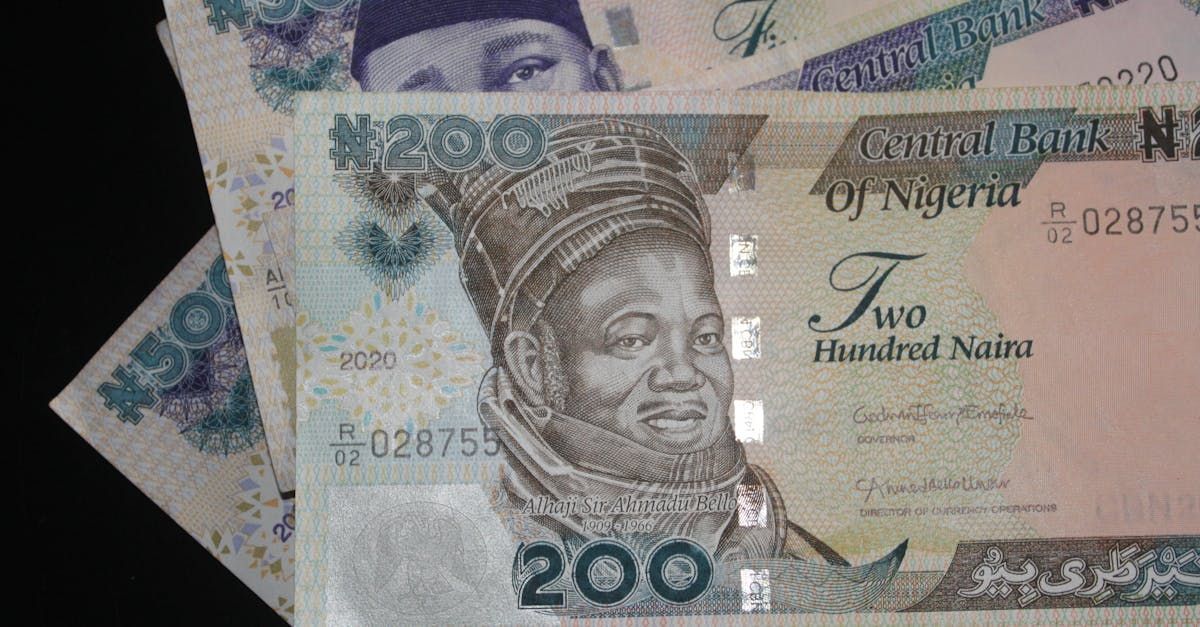The Future of Money Exchange: How Technology is Revolutionising Forex Trading
Impact of Global Events on Currency Rates
In the interconnected global economy, currency exchange rates are influenced by a complex interplay of factors, with significant global events often serving as catalysts for dramatic shifts in the forex market. These events—ranging from political elections and natural disasters to geopolitical tensions—can cause sudden and unpredictable movements in currency values, affecting everything from international trade to individual investment portfolios. Understanding how these events impact currency exchange rates is crucial for forex traders and financial professionals who seek to navigate the volatile waters of the global economy.

Political Elections: The Power of Political Uncertainty
One of the most influential factors in currency exchange rate fluctuations is political elections. Elections represent a period of uncertainty, as the outcome can lead to significant changes in a country's economic policies, including tax laws, trade agreements, and monetary policy. For instance, during the 2016 U.S. presidential election, the value of the Mexican peso experienced considerable volatility due to market fears over potential changes in U.S. trade policy under a new administration. Similarly, the Brexit referendum in 2016 caused the British pound to plummet as markets reacted to the uncertainty surrounding the United Kingdom's future relationship with the European Union.
This phenomenon is not limited to developed economies. In emerging markets, elections often lead to even greater volatility. Investors may fear that a change in leadership could result in nationalisation policies, increased regulation, or economic mismanagement. As a result, currencies in these markets can experience sharp declines in value, sometimes even before the election results are known, as investors move their capital to safer assets.
Natural Disasters: The Economic Aftershock
Natural disasters, while primarily humanitarian crises, also have profound economic impacts that extend to the forex market. A devastating earthquake, hurricane, or tsunami can disrupt a country’s economy by damaging infrastructure, reducing productivity, and increasing government spending on recovery efforts. These disruptions can lead to a depreciation of the affected country's currency as confidence in its economic stability wanes.
For example, the 2011 earthquake and tsunami in Japan caused significant damage to the country’s infrastructure, leading to a sharp decline in the value of the Japanese yen. Although Japan is a major global economy, the disaster triggered a sell-off of the yen as investors sought to minimise risk, opting instead for more stable currencies like the U.S. dollar and the Swiss franc.
The impact of natural disasters on currency exchange rates is often short-lived, as economies tend to recover over time. However, the immediate aftermath can create opportunities and challenges for forex traders, who must quickly assess the situation and adjust their strategies accordingly.
Geopolitical Tensions: The Ripple Effect
Geopolitical tensions, such as military conflicts, trade wars, or diplomatic standoffs, are another significant driver of currency fluctuations. These events create uncertainty and fear in the markets, leading to shifts in investor sentiment and capital flows. In times of heightened geopolitical risk, investors often flock to safe-haven currencies like the U.S. dollar, Swiss franc, or Japanese yen, which are perceived as more stable during crises.
A notable example is the trade war between the United States and China, which began in 2018. As tariffs were imposed and tensions escalated, the Chinese yuan depreciated against the U.S. dollar, reflecting concerns about the impact of the trade conflict on China's economy. Similarly, during the Russian annexation of Crimea in 2014, the Russian ruble experienced significant depreciation due to economic sanctions and the threat of further geopolitical instability.
Geopolitical events can have long-lasting effects on currency exchange rates, especially if they lead to sustained conflicts or prolonged economic sanctions. Forex traders must remain vigilant, as these events can unfold rapidly, requiring swift adjustments to trading strategies to protect against losses or capitalise on new opportunities.
Strategic Implications for Forex Traders
For forex traders, the ability to anticipate and respond to global economic events is essential for success. These events often lead to increased market volatility, presenting risks and opportunities. Traders who stay informed about upcoming elections, monitor natural disasters, and keep an eye on geopolitical developments can better position themselves to make profitable trades.
One key strategy is diversification, which involves spreading investments across multiple currencies to mitigate risk. By diversifying their portfolios, traders can reduce their exposure to any single currency, thereby minimising the impact of a sudden devaluation. Another approach is the use of stop-loss orders, which automatically close a position if the market moves against the trader by a predetermined amount. This can help limit losses during periods of high volatility.
Moreover, staying informed through reliable news sources and economic indicators is crucial. Economic calendars that track key events, such as central bank meetings, elections, and geopolitical developments, can provide traders with valuable insights into potential market movements. By combining this information with technical analysis and historical data, traders can develop more informed strategies that account for the risks associated with global economic events.
Conclusion
Global economic events, whether political elections, natural disasters, or geopolitical tensions, profoundly impact currency exchange rates. These events can create significant volatility in the forex market, challenging traders to adapt quickly to changing conditions. However, with careful analysis, strategic diversification, and a vigilant approach to risk management, traders can navigate these turbulent waters and potentially profit from the opportunities that arise. As the global economy becomes increasingly interconnected, understanding the dynamics of these events will be essential for anyone involved in the forex market.
Share The Post & Write Your Thoughts Below
LATEST POSTS ON INSTAGRAM!
-
#MidweekWoWCher 🎉 #RateChilling 😎 #NoDramaForNow 🤞 #SmallWinsMatter 😂 #BConGotYou 🚀Button
-
#MakeMoneyMonday 💰 #MysteriousRates 🤔 #EndMarchWithStyle 🎉 #AprilBeGreat 🚀 #BConGotYouButton
-
#MothersDay ❤️ #CelebratingWomen 👑 #LoveAndAppreciation 💕 #BConCares 💙Button
-
#FriYAYVibes 🎉 #RateWatch 👀 #EndOfMonthRush 💸 #HopeForStability 🤞 #BConGotYouButton
-
#MidweekWoWCher 💥 #BudgetDayThriller 🎬 #RateLookingGood 💵 #ThankMeLater 😏 #WeMove 🚀 #ComebackLoading 🔄 #BConGotYou 💪Button
-
#MakeMoneyMonday 💵 #BossModeOn 🚀 #FruitfulWeek 🍇 #Let’sGetIt 💪Button
-
#FriYAYVibes 🚀 #ThrowbackRate 🎶 #BringTheHeat ☀️ #StayFlyStayFunky 🕺 #WeekendModeOn 🔥#ThanksForChoosingBConButton
-
#MidweekWoWCher #MoneyMoves #FXUpdate #ExchangeRate #BConButton
-
#MakeMoneyMonday #RateUpdate #NewWeekNewMoves #StayWinning #WhatsApp07908687366Button
-
#TGIFriYAY #WeekendLoading #RateUpandDown #DunnoWhentoGrabYours? #AskUsButton
-
#MidweekWoWCher #2KMilestone #MoneyMoves #ExchangeRate #SmartSpending #BConButton
-
#MakeMoneyMonday #NewWeek #NewGoals #ExchangeRate #StayAhead #BConButton
-
#HelloWeekend #InternationalWomensDay #WomenRock #ExchangeRate #RateRising #BConButton
-
#TGIFriYAY #FXWonders #ExchangeRate #GBPvsNaira #MakeTheRightMove #FamilyFriYAY #BConButton
-
#MidweekWoWCher #ExchangeRate #GrabItFast #PoundOnTheRise #BConButton
-
#MakeMoneyMonday #ChaChingSeason #MarchForward #BCon #NewDeals #TradeAndShine #StayWinning #NewEraButton
-
#HelloMarch #WeekendVibes #KeepMarching #RamadanMubarak #BConButton
-
#FriYAY #GoodbyeFebruary #BCon #KeepTrading #MarchOnButton
-
#MidweekWoWCher #BCon #RateWatch #TradeSmart #StayReady #KeepWinningButton
-
#MakeMoneyMonday #SalaryWeek #PlanAndWin #SmartSpending #FruitfulWeek #ActNow #LockItIn #FinancialGoals #MoneyMovesButton
-
#MidweekWowcher #BCon #StayReady #RateGrooves #YoYoRate #RateBattle #GoingDown #CatchItIfYouCan #BconCantBeBeatenButton
-
#MakeMoneyMonday #BackToReality #RateIsRating #Let’sGetThisBread #GodBlessYourHustle #FruitfulWeek #CantBeBeaten #BConButton
-
#LoveAndLoyalty #YouMakeUsSmile #ValentineVibes #CherishedCustomers #HeartfeltThanks #HappyValentineFromBConButton
-
#MidweekWoWCher #RateUpOrDown #WeGotYou #AlwaysHere #BConTrust #StayWinning #WeStayServing #UnpredictableButReliable #WinningWithUs #NewEraButton
-
#MakeMoneyMonday #MoneyMondayVibes #RateWatch #BConHustle #MondayMoves #KeepTheFaith #BConFam #RateDrama #MoneyTalks #WhatsappUsOn07908687366 #NewEra #BlessedWeekAheadButton
-
#TGIFriYAY #FinancialGoal #SpendMoneyWisely #LiveLife #SpendYourMoneyOnYouOnWhatYouNeed #WisdomIsProfitableToDirect #BConRemainsUnbeatable #WhatsappOn07908687366Button
-
#MidweekWoWCher #WeGiveFinancialAdvise #WeHelpBuildConsistencyAndContinuity #BConSolutionsCantBeBeatenButton
-
#ThoughtfulTuesday #TuesdayNugget #MotivationalTuesday #letsRollWithItButton
-
#GettingJiggyWithIt #RateNostalgia #RetroEdition #TodaysRateHasTimeTraveledTo90s #SendYourMoneyUsingOurService #ToandFromNaija #ThankGodItsFriYAY #NotSureIfNigeriaIsBetterOrPoundsGettingWorse #WhateverTheCaseWeAreAlwaysHereToServeYoButton
-
#MidweekWowcherWednesday #DeepKnowledgeDay #BConCantBeBeatenOnRate #WhatsappUsOn07908687366 #WeFixAllRemittanceAndFXNeeds #ThankYou #ButThankGodTheMost #NewEraButton
-
#MakeMoneyMonday #StartYourWeekWithUs #CantBeBeatingOnRate #NewEra #MakeAJoyfulNoiseToGod #ReachUsOnWhatsapp07908687366 #YouWillBeGladYouDid #HaveABlessedWeek #withGoodnessOfGodOnYouAndYoursButton
-
#ThankGodItsFriYAY #TimeToRecoverFromLongWeekStress #AlsoTimeToPutAsmileOnSomeonesFace #PayDay #SendSmallQuidAndGetPlentyNaira #GetMillionWithUnder500 #BCon #SendMoneySwiftly #NewEra #GodAbegButton
-
#ThursdayShowers #BlessingsFromAbove #NewEra #NewBCon #ForAllYourRemittances #WeAreHereToStay #WeLeadOthersFollow #PaceSetter #itsAllGodsGloryButton
-
#MidWeekWowCher #DidYouKnow #NewEra #GodsGotUs #BringItOn #BuzzOnWhatsappForRemittanceNeedsButton
-
It’s a new dawn for America, or maybe not so new.Button
-
Who knew ? #bconButton
-
Happy new year !!! It’s time to make some new money #bconButton
-
Merry Christmas 🎅Button
-
Who can guess the number for chickens?? 😂🫢🫢Button
-
Monday is just as loved as Friday….. or not? #bconButton
-
It’s friyayyyy our best day of the week … to make it all the more yayyy it’s a friyayy in December 🎉🎉🎉Button
-
Anybody knows why?Button
-
Every Monday is a merry Monday in December 😆Button
-
But who knows where the origin of Christmas tree came from ?Button
-
If this doesn’t get your body moving already I don’t know what would #tgif #friyayButton
-
I mean #rugby and #cricket already sounds #british but who would have thought #boxing ?? So un-British like 😂🤣 but then is there such a word as un-British like? It’s Did you know Wednesday! Break outside your box! #bconButton
-
It’s always a good day to talk #money with #bcon.Button
-
I think we need to convert our world economy to Monopoly money right away! #bcon #moneyButton
-
Ok BCon, we hear you! #bcon #monday #mondaymotivationButton
-
We understand not having a passport on English soil (The UK) but how did other countries deal with the immigration of that?? Did you know this?? #bcon #didyouknow #wednesdayButton
-
Another day to go get that paper #bcon #mondayButton
-
Who knew? #bcon #funfacts #wednesdayButton
-
The perfect sign we need. #bconButton
-
Next time you enjoy a game of tennis, remember the English did it first. #english #england #bcon #wednesdayButton
-
Everyone loves the smell and prospects of money...if you don't, you can give us yours for keeps ☺️😂 #bcon #monday #mondaymotivation #moneyButton
-
🥹🥹Its another #friyayButton
-
Who is ready for a prosperous week?? We know we are at #bconButton
-
Its another #tgif Dont we just love #friyayButton
-
I definitely didn't know this, did you??Button
-
Who is excited that its #friyayButton
-
Although this week is customer service week…. Our customer services to you will always remain timeless.Button
-
Who knew ??? #bcon #didyouknowButton
-
Its #tgif!!! What’s your plan???Button
-
Did you know??? #bcon #didyouknowButton
-
Its Monday! Lets make the week count #bconButton
-
Did you know ??Button
-
Color, culture, and rhythm – Notting Hill Carnival is where the heart of London beats the loudest! #bankholiday #nottinghillcarnival #bconButton
-
Happiness is an intentional state of mind… not affected by situations #bcon #happiness #wednesdaysButton
-
Its that time of the week again #friyayButton
-
Did you know?? #bconButton
-
It’s another tgif … yayyy we hope you have a relax full weekend #bcon #tgif #friyayButton
-
We hope you not only have an inspiring day but you get the chance to inspire too. #bcon #wednesdayButton
-
Go for everything #bcon #mondayButton
-
Did you know? #bconButton
-
#didyouknowButton
-
May our efforts be translated to success. Have a productive week 🙏🏽. #bcon #mondayButton
-
Its Friday guys 💃🏽💃🏽💃🏽 #friyay #bconButton
-
Happy #eidmubarak. May all our prayers be answered. #bconButton
-
Happy Father’s Day #fathersday #bconButton
-
Most loved day of the week is here 🎉🎉Button
-
Happy #democracy Day #Nigeria. Lets take a poll if you think Nigeria is truly democratic. De jure or De factoButton
-
It’s Monday! Let’s get on that purpose. #monday #bconButton
-
It’s #wisdomwednesday. Did you know? ##bconButton
-
Happy new month. #bcon #mondayButton
-
Did you know? #wisdomwednesday #bconButton
-
Happy Childrens day to the child in each and everyone of us. #bcon #childrensdayButton
-
Friyay is here with its magical wand to remind you to whine it down a bit and let your mind, body and soul breathe. #bcon #tgif #friyayButton
-
Monday is bringing in a good sunshine, put on your glasses and get ready for a bright week ahead #monday #sunshineButton
-
I don’t know about you but I can’t wait 💃🏾💃🏾💃🏾💃🏾💃🏾 #tgif #bcon #friyayButton
-
It’s a good day to start on that dream / passion. #bconButton
-
Think Positive 💎Button
-
Because you can achieve anything with a positive mindsetButton
-
Hehe who agrees ???Button
-
Did you know??? #may #may1st #workersday #bconButton
-
May everything good come to youButton
-
We’re having a head start with #tgif come join us and let us know how you’re spending you're.Button
-
The next time you hear “do you want a cup of tea” in England understand that it's another word for “hello” or “you’re welcome” 🤣😂. #bcon #englandButton
-
Cheers to a productive week #bconButton
-
May our prayersButton
-
Ready to have an amazing week with us??? Let's go!Button
WE ARE Back and Better!
- Mon - Fri
- -
- Saturday
- -
- Sunday
- -
QUICK LINKS
TERMS OF USE
All Rights Reserved | BCon Solutions Ltd
HMRC no: XMML00000176450
powered by CreateMyMobile






































































































